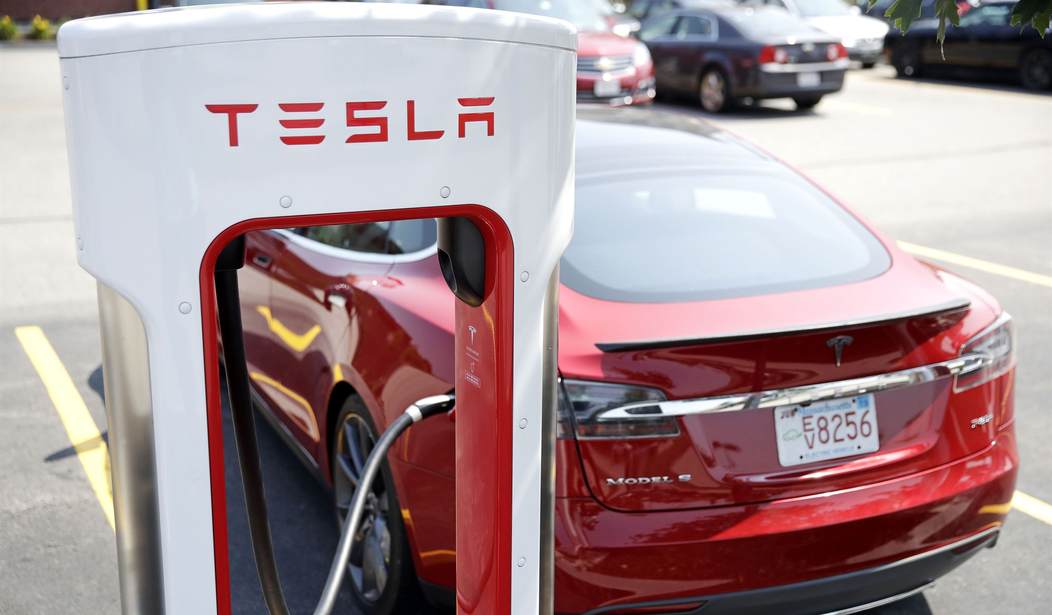Top News
EVs experienced record sales in the 2nd quarter

This is probably the one issue where I’m an outlier at Hot Air. All of my fellow authors at the site seem convinced that EVs are doomed to failure for one reason or another but I keep seeing stories like this one from Barron’s:
While the second quarter was a good one for the entire U.S. auto industry, it was a blockbuster period for battery-electric-vehicle sales.
Americans bought a record 295,255 battery-electric vehicles during the period, according to Cox Automotive’s second-quarter electric-vehicle summary.
Here’s Cox Automotive’s summary of the sales data:
Nearly 300,000 new electric vehicles (EVs) – full battery-electric vehicles – were sold in the U.S. in Q2, a record for any quarter and an increase of 48.4% from Q2 2022. Tesla, again, was the largest seller of EVs in the U.S., with more than 175,000 sold, an increase of 34.8% quarter over quarter. Sales growth at Tesla, and the EV segment overall, was aided by sizeable price cuts by some automakers (Tesla, really) and incentive levels well above the industry average. In June, the average price paid for an EV was down nearly 20% year over year. EV share of the U.S. market in Q2 was 7.2%, up from 5.7% a year ago and down from the high in Q1 of an upwardly revised 7.3%.
The real story is here is Tesla, which accounts for a majority of all the EVs sold last quarter. They are on track to sell around 1.9 million cars globally this year. That’s still not in the league with companies like Volkswagen or Toyota which sold 8 million and 10 million cars last year respectively. But you have to look at the trends to appreciate what is happening. VW sold just shy of 11 million cars globally in 2019. Since then sales have dropped substantially.
Despite this, VW’s profits have rebounded from the pandemic to $46 billion. Meanwhile, Tesla only sold 1.3 million cars last year but made a profit of $12.6 billion and their sales continue to grow. They are literally selling cars as quickly as they can make them.
That said, it’s true that other automakers are not doing nearly as well. Lordstown went out of business. Lucid appears to be struggling making cars for the top end of the market. Ford’s EV sales fell last quarter. Ford’s flagship Lightning electric pickup sales were up, but they only sold 4,466 last quarter (and likely lost money on every one). GM is the same story. They have one EV that has sold well, the Bolt, and it has been discontinued after a major recall prompted by concers about batter fires.
In short, Tesla EVs are expanding much faster than the overall market but almost no one else’s EVs are selling well. That doesn’t mean the entire sector is doomed. On the contrary, the sector is booming. It just means there’s only one company capable of making a compelling EV at scale right now. Everyone else is years behind and is putting out unprofitable cars just to claim they’re still in the game. And every once in a while the truth comes out. Here’s Ford CEO Jim Farley explaining why Ford (and everyone else running a legacy company) simply can’t offer what Tesla is offering.
There are structural challenges here that the legacy automakers are struggling to overcome. They will get there eventually but right now they just can’t offer much competition and that is showing in the backlog of EVs at dealerships. These companies know they need help which is why Ford, GM, Mercedes and others have all recently made deals with Tesla to adopt their charging standard and use their charging network.
Meanwhile, the market itself is changing fast. Just last month Jazz highlighted a story which claimed only 19% of new car buyers were considering and EV. As I pointed out here, CNBC’s coverage was a bit misleading. The actual figure from the poll was 41% who would consider and EV. That was just a few months ago. Cox Automotive asked the same question and the response they got was greater than 50%.
According to Cox Automotive research, 51% of consumers are now considering either a new or used EV, up from 38% in 2021. Still, while interest in EVs rapidly increases, the gap between consideration and sales remains wide.
Yes, the gap remains wide but that’s likely because the up-front price remains high. Most EVs (including all Teslas) are part of the luxury car segment. Not everyone is in the market for a $45,000+ car. Toyota became the sales king by selling Corollas which retail for half as much. Tesla doesn’t have a car that competes at that price level yet but it will start building one as soon as next fall at their new factory in Mexico. Once that happens, you can bet that EVs are going to have a very good year again. Much sooner than most people think, EVs are going to be 20% of US sales.
Read the full article here


















